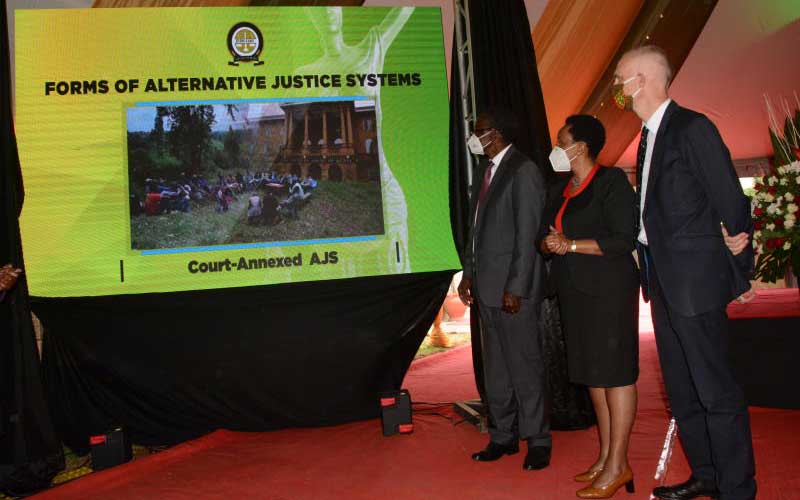×
The Standard e-Paper
Stay Informed, Even Offline

Chief Justice David Maraga, his deputy Philomena Mwilu and former US envoy Robert Godec during the launch of the alternative justice system policy at the Supreme Court yesterday. [Wilberforce Okwiri]
You can now have your simple case heard by a council of elders, after the Judiciary unveiled a policy that embraces and outlines guidelines for traditional methods of conflict resolution.